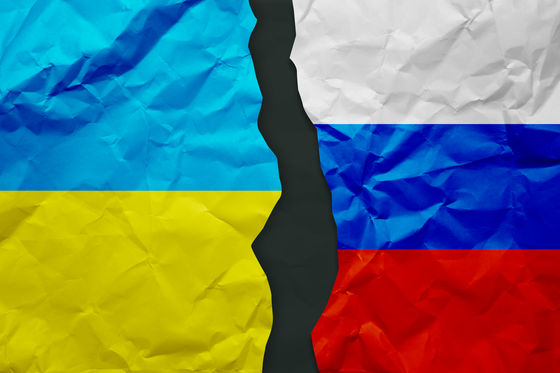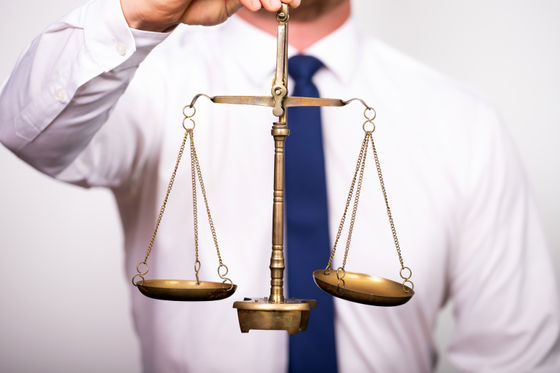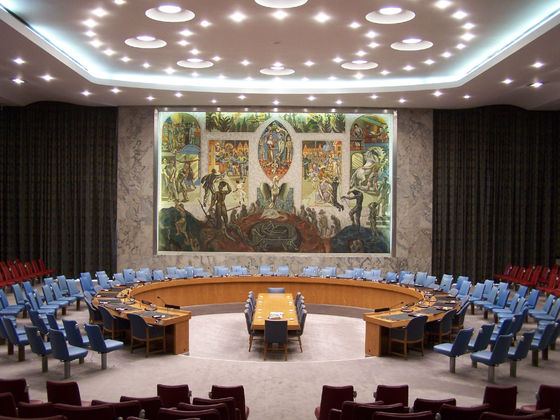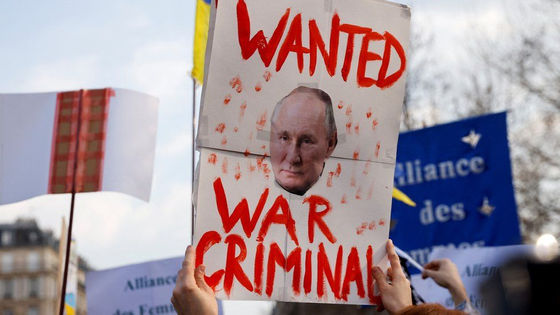'Is it possible to judge Putin as a criminal?' Answered by an international law expert

On February 24, 2022, Russia launched an invasion of Ukraine while an emergency meeting to avoid war was being held at the United Nations Security Council. As there are growing calls for the significance of international frameworks to prevent war, including the United Nations, international law experts asked, 'What can international law do against the invasion of Ukraine?' 'Russian troops and Putin Is it possible to charge the president in court? '
Is international law powerless against Russian aggression in Ukraine? No, but it's complicated
◆ What kind of law did Russia violate?
To the question of whether Russia's conduct is illegal in the first place, Juliet McIntyre, a lecturer in the Faculty of Law at the University of South Australia, said, 'Yes, there is no doubt that Russia violated the rules of international law.' Ukraine has the right to its territorial integrity and political independence, even if Russia unilaterally approves the Donetsk People's Republic and the Lugansk People's Republic , which are 'self-proclaimed states proclaiming independence' in eastern Ukraine. The reason is that it doesn't change.

International law prohibiting invasion has a long history, as stipulated in the
Most importantly, Russia's conduct is stated in the Charter of the United Nations : 'All Member States must refrain from threatening or using force in their international affairs in any way ...' McIntyre and colleagues pointed out that it was a serious violation of the rules.
◆ Is there anything the Security Council can do?
Article 24 of the Charter of the United Nations recognizes that the Security Council has 'a major responsibility for maintaining international peace and security.' Its responsibilities also include preventing the threat of peace, taking collective measures to counter it, and deterring the war of aggression.
In the first place, the United Nations was established so that the world war between the great powers would not occur again, and since the same situation has not occurred from the end of World War II to the present day, in a sense, it is possible to achieve the main purpose. It can be said that it is successful. On the other hand, the problem is that the Security Council was created by the Allies who won World War II. For this reason, the victorious nations of World War II, China, France, Great Britain, the United States, and the successor to the Soviet Union, Russia, were virtually legal.

The veto of a UN resolution symbolizes this position. This system, designed to help the great powers restrain each other, only works if the great powers obey the rules. During the Cold War, the power balances of the great powers were in conflict, but the collapse of the Soviet Union caused the power balance to collapse, and the meaning of each country's obedience to the rules diminished.
And in the 1990s, the United States and Great Britain began to use the Security Council to justify their military operations. After that, when Russia and China became confident enough to exercise their veto rights, the United States and Britain began to take military action without a Security Council resolution. The most prominent example is the
This Russian invasion of Ukraine is proceeding in the same scenario. In this regard, McIntyre et al. 'For decades, the Security Council's restraint of military action was a wind-blown light, but we may have only seen the moment when the fire went out forever.' Said.
◆ What can other international rules do?
The Security Council set out in Article 24 of the Charter of the United Nations no longer works, but there are other rules to protect Ukraine or sanction Russia. One of these is the invocation of Article 51 of the Charter of the United Nations, which recognizes the right of individual and collective self-defense.
This will allow Ukraine to use force to protect its own country, as well as to request military assistance from other countries. In 1990, Iraq invaded Kuwait, and Kuwait was temporarily occupied by Iraq, but succeeded in becoming independent with military support from other countries.
There are also voices saying that Russia should be disqualified from the permanent members of the Security Council in the first place, but this is not very realistic. Article 108 of the Charter of the United Nations allows amendments to the Charter, including changes to the composition of permanent members, but it requires the consent of all permanent members. This means that expulsion of Russia from the Security Council requires Russian approval, which is virtually impossible.

by
Is it possible to prosecute President Putin for a crime?
Another legal framework is the International Criminal Law . Russia's war crimes within Ukrainian territory are under the jurisdiction of the International Criminal Court (ICC) , as President Putin's war is a crime of aggression .
However, for this system to work, both the invading and the victims must be the signatories of the Rome Statute . Ukraine is a signatory to this provision, but Russia is not. As such, the ICC would need to be referred by the Security Council to exercise jurisdiction over Russia's aggression, but again Russia's veto would prevent that resolution.
Also, even if a war crime committed in Ukraine were to be tried by the ICC, it remains questionable whether Putin could be accused. Because the crimes committed in Ukraine were directly committed by soldiers who entered Ukraine, it is difficult to link the crimes to the president, and there is no precedent for a court to succeed in doing so.

Universal jurisdiction is a framework that is free from these issues. This is the principle that any country in the world can prosecute those crimes, regardless of the country in which the crime was committed or committed. It doesn't matter who is where, so even if you're not a frontline soldier, you're subject to trial.
However, the difficulty with universal jurisdiction is that the suspect must be identified. In general, heads of state are exempt from prosecution under foreign statutes, and to make it happen, someone must dismiss Russian leaders, arrest them, and send them back to court for trial. Must be.
From this point of view, McIntyre et al. 'The answer to whether someone could be brought to court in Russia's invasion of Ukraine is'no'in the short term, and in the long run. But 'maybe'. The job of the international community is to support Ukraine's self-defense while gathering evidence of crime to do so. '
Related Posts:
in Note, Posted by log1l_ks







